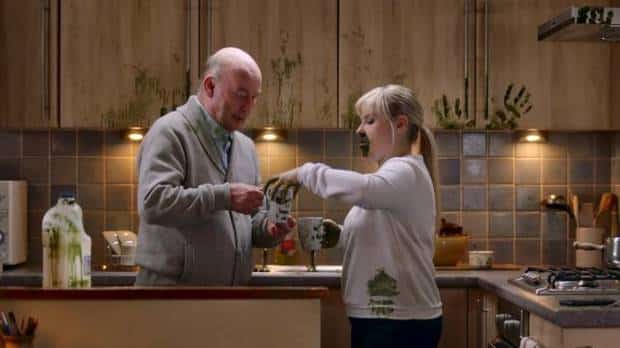You’ve seen ‘stay at home, control the virus’. You’ve seen ‘stay alert, control the virus’. Now, get ready for the unlikely third chapter ‘stay scared, don’t kill grandad’.
That’s right the Scottish government, not content to watch their democratic mandate evaporate completely, have seemingly resorted to a new strategy: terrifying citizens. From Nicola Sturgeon, the First Minister who brought you ‘It’s Westminster’s Fault 2’, comes the scarring tale of a young COVID carrier and her vulnerable grandad. Expect ominous music, a tea break, and lashings of green slime guest-starring as the virus itself. Watch below:
Close to the bone right? I hope so. As I write crowds are gathering in London to protest new lockdown measures. Meanwhile, some coronavirus deniers even banning masks in their stores. The video is horrifying. But currently, we are cruising towards more cases and more deaths.
You may be thinking this is akin to emotional blackmail. You’re not alone, that was also felt in the comments (which are now disabled). Yet, if anything, the tone of the advert is an even clearer indicator of the seriousness of the situation. Anyone who read about The Rock’s battle with Coronavirus knows being healthy doesn’t guarantee immunity from the virus or the long-term health issues that follow.
Yes, the government has been useless. Yes, older generations are scapegoating the young after luring them to university halls, taking their rent, and locking them down. Yet, while insisting on your individual sense of self-importance may allow you a big night out, or the ability to have Christmas as a family this year, it won’t slow the spread of the virus.
My grandmother died of Covid-19 in March of this year. It ripped through her nursing home. She died on Skype as my mother watched. This isn’t a hoax, it’s got nothing to do with 5G towers. Also, shockingly, the vaccine won’t allow big government to read your mind. So, spare a moment for all those ‘freedom fighters’ in London today. Ask yourself, when did freedom become the right to endanger the most vulnerable members of society?














